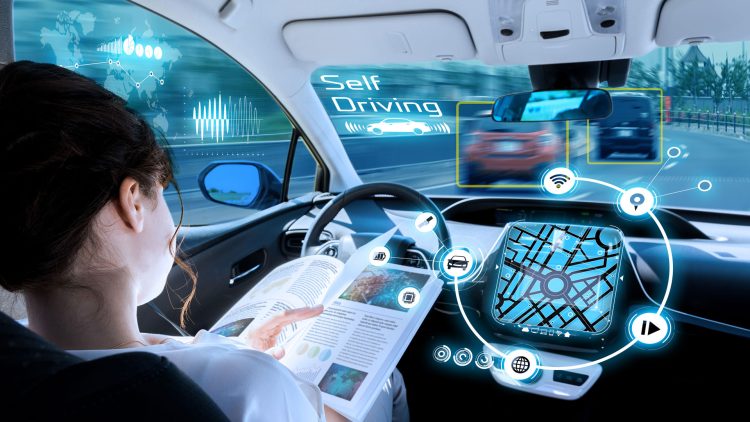Introduction
In the fast-paced, ever-evolving world of business, industries are constantly adapting to shifts in consumer behaviors. These shifts are not just influenced by technological advances, but also by deeper changes in societal values, economic conditions, and global events. Understanding how changing consumer preferences shape industry trends is crucial for businesses looking to stay competitive and relevant.
In this article, we will explore the key drivers behind shifting consumer behaviors, the ripple effects on various industries, and how businesses can leverage these changes to thrive.
The New Age of Consumer Expectations
1. Personalization: The New Norm
Consumers today demand products and services that are not only functional but also tailored to their individual needs. This desire for personalization stems from the vast amounts of data businesses can now access. From custom-built sneakers to personalized content on streaming platforms, companies are using data analytics and AI to craft experiences that feel uniquely suited to each consumer.
This trend is particularly noticeable in sectors like fashion, entertainment, and retail. Companies like Amazon, Netflix, and Spotify are leading the way by offering hyper-personalized recommendations. In fact, a report from Epsilon found that 80% of consumers are more likely to purchase from a brand that offers personalized experiences.
2. Sustainability and Ethical Consumption
As climate change concerns grow, more consumers are opting for products and services that align with their ethical values. Sustainability has become a crucial decision-making factor for many shoppers, especially among Gen Z and millennial demographics.
Industries such as fashion, food, and travel are feeling the pressure to become more transparent about their environmental impact. Brands like Patagonia and Everlane have capitalized on this shift by adopting sustainable practices and promoting their eco-friendly credentials. As consumers become more conscientious about their purchases, companies are investing in sustainable sourcing, zero-waste packaging, and ethical production processes.

3. Health and Wellness
The increasing focus on health and wellness is another significant trend shaping consumer behavior. Post-pandemic, consumers are more health-conscious than ever before. This trend is reflected across various industries, from fitness and food to technology and travel.
In the food industry, there’s a growing preference for plant-based diets, clean eating, and products that promote mental well-being. Brands such as Beyond Meat and Oatly are capitalizing on this shift by offering plant-based alternatives to traditional meat and dairy products. Fitness and wellness apps like Peloton and Calm are also riding this wave, offering consumers easy access to workout routines, mindfulness practices, and healthy living tips.
Industries Most Affected by Changing Consumer Behaviors
1. Retail Industry: From Brick-and-Mortar to E-Commerce
The retail industry has experienced a dramatic transformation due to changing consumer behavior. With the rise of e-commerce platforms and mobile shopping apps, traditional brick-and-mortar stores are facing increased competition. Consumers today expect convenience, ease of access, and the ability to shop from anywhere, at any time.
The COVID-19 pandemic accelerated this shift, pushing more consumers to online shopping and creating a new demand for fast and flexible delivery options. The focus is now on seamless digital experiences, with augmented reality (AR) tools allowing consumers to virtually try on clothes or test products before purchase. Companies that blend online and offline experiences, like Amazon’s physical stores or Warby Parker’s home try-on feature, are setting new standards in retail.
2. The Entertainment Industry: Streaming Wars
The entertainment industry is another sector that has been fundamentally altered by shifting consumer behaviors. The rise of streaming services has changed how people consume television, movies, and music. Traditional cable television is being replaced by platforms like Netflix, Hulu, Disney+, and Spotify, all of which offer on-demand access to content for a fraction of the cost of a cable subscription.
Consumers now expect to binge-watch entire seasons of shows or listen to any song at the click of a button. This shift has forced traditional media companies to rethink their business models. For example, major movie studios are releasing films directly on streaming platforms rather than in theaters. The rise of user-generated content on platforms like YouTube and TikTok is also reshaping the industry, with a new generation of content creators challenging the dominance of traditional celebrities.
3. Automotive Industry: Electric and Autonomous Vehicles
The automotive industry is undergoing a revolution. Changing consumer preferences for sustainability and technological innovation are driving demand for electric vehicles (EVs) and autonomous driving technology. Companies like Tesla have revolutionized the car market by offering fully electric vehicles with cutting-edge technology, leading traditional carmakers to follow suit.
The shift towards EVs is also driven by increasing government regulations around carbon emissions and consumer demand for cleaner alternatives. In addition, autonomous vehicles promise to change how we think about transportation, offering greater safety, convenience, and efficiency. As consumers embrace these new technologies, car companies are investing heavily in electric and self-driving vehicle development.
4. Food and Beverage Industry: Health-Conscious and Plant-Based Eating

As mentioned earlier, consumers’ growing focus on health and sustainability is reshaping the food and beverage industry. There is an increasing demand for plant-based, organic, and locally-sourced products. This is particularly evident in the rise of meat alternatives like Beyond Meat and Impossible Foods, which cater to the growing number of consumers adopting plant-based diets.
Fast-casual dining chains like Chipotle and Sweetgreen have responded by offering healthier, more sustainable options, while traditional fast-food giants like McDonald’s have added plant-based menu items to their offerings. This shift is also reflected in packaging, with a growing emphasis on reducing plastic and increasing the use of recyclable or biodegradable materials.
The Role of Technology in Shaping Consumer Trends
1. Artificial Intelligence and Automation
AI and automation are playing a significant role in shaping consumer expectations. From chatbots providing instant customer service to personalized recommendations driven by machine learning, AI is enabling businesses to offer more efficient, tailored experiences. Consumers expect instant gratification and personalized service, and AI helps companies meet these expectations at scale.
Automation is also transforming industries like manufacturing, logistics, and retail. Self-checkout systems, delivery drones, and automated warehouses are reducing costs and improving efficiency, all while enhancing the customer experience.
2. Augmented Reality (AR) and Virtual Reality (VR)
AR and VR are changing the way consumers interact with products and services. In retail, AR allows customers to virtually try on clothing or visualize how furniture will look in their homes before making a purchase. In the real estate industry, VR is being used to give potential buyers immersive, 3D property tours.
This technology is enhancing the overall shopping experience, helping businesses stand out in a crowded market. As the technology becomes more accessible, we can expect to see AR and VR applications expand into other sectors like education, healthcare, and travel.
Conclusion
The impact of changing consumer behaviors on industry trends is undeniable. Personalization, sustainability, health-consciousness, and technological innovation are shaping the future of business across multiple sectors. Companies that understand these evolving preferences and adapt quickly will not only survive but thrive in a competitive marketplace.
For businesses, the key to success lies in embracing these shifts, investing in new technologies, and staying attuned to the evolving needs and expectations of their consumers. The future is not only about offering products but about creating meaningful, personalized experiences that resonate with the modern consumer.










































